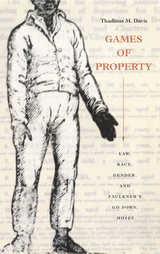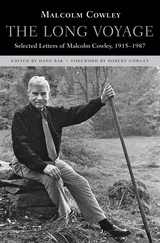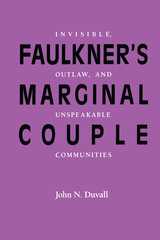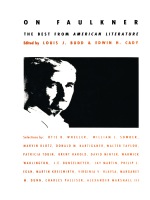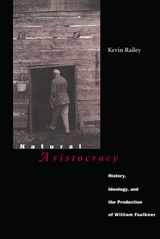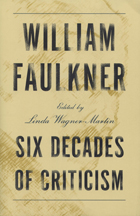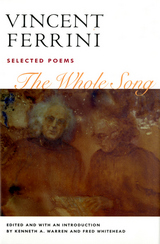Creating Faulkner's Reputation: Politics Modern Literary Criticism
University of Tennessee Press, 1988
Paper: 978-0-87049-645-5 | Cloth: 978-0-87049-565-6
Library of Congress Classification PS3511.A86Z9663 1988
Dewey Decimal Classification 813.52
Paper: 978-0-87049-645-5 | Cloth: 978-0-87049-565-6
Library of Congress Classification PS3511.A86Z9663 1988
Dewey Decimal Classification 813.52
ABOUT THIS BOOK | REQUEST ACCESSIBLE FILE
ABOUT THIS BOOK
In the 1920s, William Faulkner was an unread and unappreciated author. All his books were out of print. Yet by 1950, he was revered by critics and winner of the Nobel Prize.
Schwartz traces how the development of New Criticism, a re-evaluation of his work (the difficulty of his style and depraved subject matter, once considered a negative, were now praised), and the publication of THE PORTABLE FAULKNER all went to make him the most respected writer of the 20th Century.
Only about half the book is about Faulkner directly, however; there is also a long chapter on the politics of the new criticism and the intellectual stand of the critics in the 1940s. Some might appreciate this diversion, and much of it is interesting, but for me it went on too long and took away from the main subject of the book. Readers interested in Faulkner's literary career will definitely this book valua
Schwartz traces how the development of New Criticism, a re-evaluation of his work (the difficulty of his style and depraved subject matter, once considered a negative, were now praised), and the publication of THE PORTABLE FAULKNER all went to make him the most respected writer of the 20th Century.
Only about half the book is about Faulkner directly, however; there is also a long chapter on the politics of the new criticism and the intellectual stand of the critics in the 1940s. Some might appreciate this diversion, and much of it is interesting, but for me it went on too long and took away from the main subject of the book. Readers interested in Faulkner's literary career will definitely this book valua
See other books on: 1897-1962 | Canon (Literature) | Criticism | Faulkner, William | Subjects & Themes
See other titles from University of Tennessee Press




